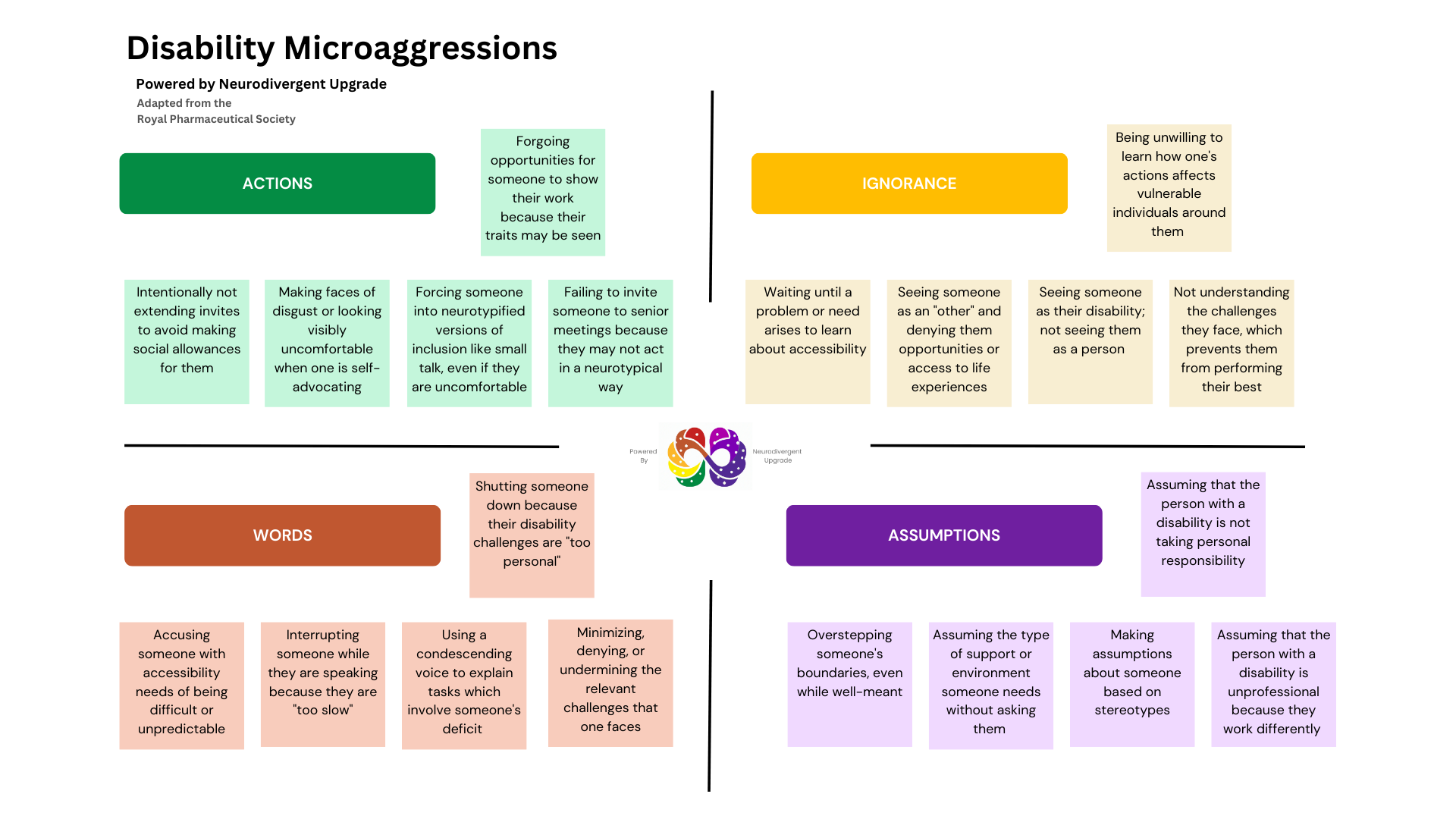What Is Respect?
Every work environment has professional standards. For example, it is expected that everyone, including superiors, show up to work on time. In the absence of any effective standard for professional communication around disability, we are here to remind you what true basic respect and inclusivity should look like, even if you have never experienced it at work or school (Strassmann-Peña 2023).
Respect Means They…
- Engage in active listening.
- Communicate their needs and demonstrate interest in a mutually beneficial solution to the issue, just like any other workplace conflict.
- Reciprocate the effort you put into successfully executing the conversation.
- Anticipated and planned for accessibility discussions.
- Ally themselves with you against your barriers, rather than you as a person because of your barriers.
- Treat easy to implement accommodations as a basic part of pro-social behaviour, rather than treating you as someone who is inherently difficult if your needs exceed the basic legal scope for support.
- Never expect you to be flawless, especially if they have more life experience than you when it comes to learning how to self-regulate, and their standards account for your unique position as someone with disabilities.
- Do not get frustrated by the emotional labour they have to do in accommodating and respecting you, and they can tell how hard it is to advocate for yourself over and over again.
- Need not be compensated in order to be motivated to help you. While this can be a useful strategy, it is by no means what an inclusive management style looks like.
Respect Means They Do Not…
If you are neurodivergent, it is possible that you have never experienced respect for revealing your natural neurodivergent traits in your entire life. Here is what microaggressions look like. Even if they feel normal, these are inappropriate neurotypical behaviours.

